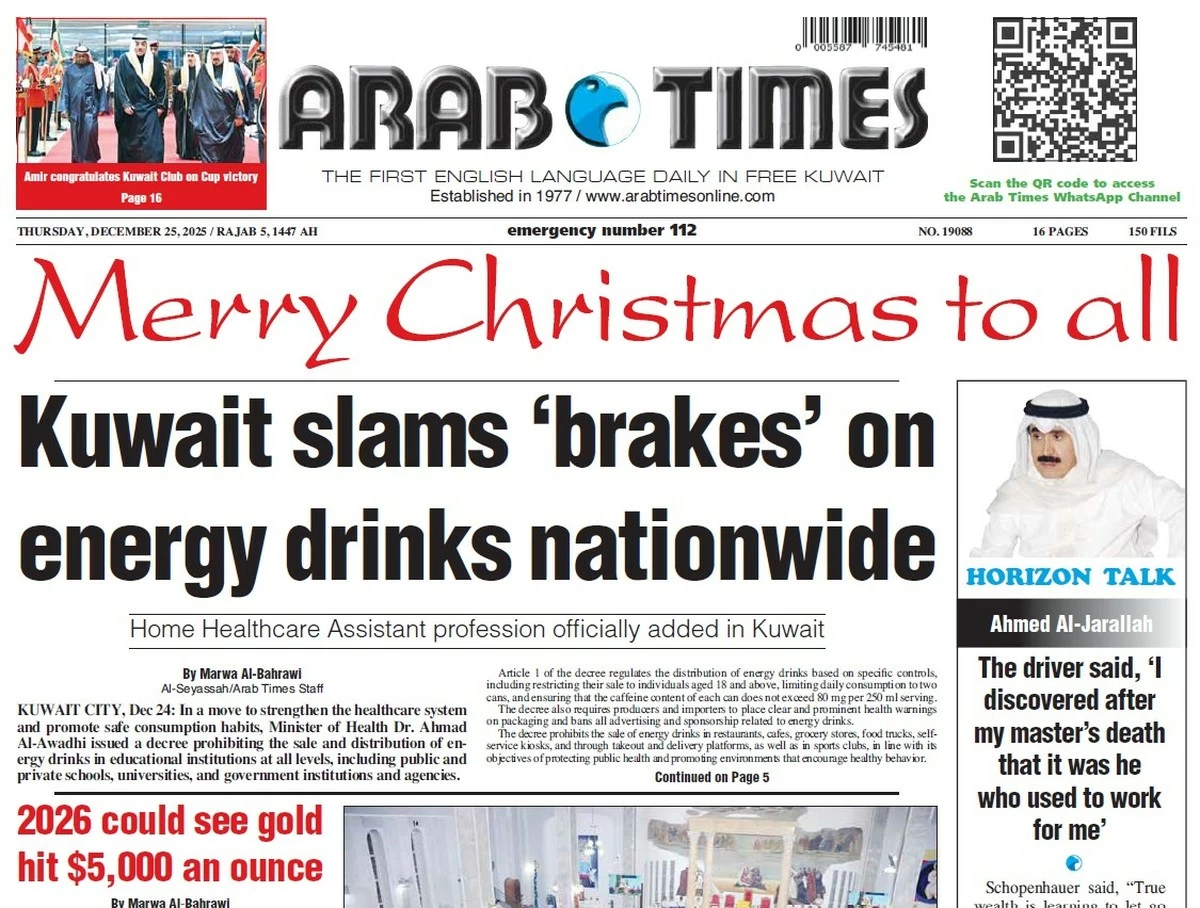21/09/2024
21/09/2024
HONESTY is the best policy and the most effective way to correct a mistake. I hence express my opinion the way I see things and the way the majority does as well.
It is imperative for us to evaluate the negative aspects of the last 50 years, which outweigh the positives and cannot be relied upon to build a strong state.
As we have been saying for a while, Kuwait is ruled by 51 leaders. The National Assembly comprises 50 of them, while the real leader resides in the Seif Palace. These 50 leaders have overshadowed everything. They have infiltrated the judiciary and the executive authority, and fearlessly undermined the balance of power, which is essential for modern governance. They even turned the entire government into something akin to a “Friday market”, where values are traded.
They have planted their cronies in every institution, perpetuating injustice to such an extent that a competent individual who is not loyal to them is labeled corrupt, while the incompetent thrive due to tribal, sectarian, regional, or partisan ties, or self interest.
As a result, due to the widespread corruption, capable officials have been removed, and projects have been suspended or canceled simply because certain lawmakers did not receive their due share, or because they failed to promote the party’s agenda or protect the interests of powerful profiteers. They enacted laws that were tailored to serve their narrow financial and social interests.
They have severely harmed Kuwait’s relations with its neighbors and beyond. For example, they offended leaders in Gulf and Arab countries, presenting themselves as the sole holders of connections and solutions.
Also, when the leaders of the Gulf Cooperation Council approved to support Egypt following its liberation from the Muslim Brotherhood Group, MPs who were aligned with the group protested, demanding that the aid of four billion dollars not be deposited in Egypt’s Central Bank.
Furthermore, they proposed a draft law restricting the Amir from donating more than five million dollars, and they interfered in matters related to granting and withdrawing nationalities.
Dissatisfied, they proposed a draft law that even banana republics have not seen, aiming to subjugate all authorities. This law prohibited criticism of the National Assembly and its members, imposing a five-year prison sentence for anyone who demanded constitutional amendments or the dissolution of the National Assembly, effectively consolidating their control.
This situation could not continue, as it ultimately threatens the integrity of the state and impacts Kuwait’s fundamental social, cultural, and economic aspects.
The Constitution contains flaws and loopholes that allow one authority to oppress others, leading to numerous calls for amendments. Yet, the response has been that this is how democracy functions. When citizens demand the dissolution of the National Assembly, they are reminded that they were the ones who elected its members. This traps us in a vicious cycle while the country continues its decline.
It has been said in the past, “He who does not have a leader buys a leader.”
For 50 years, Kuwait has been in need of a leader who understands the ongoing destruction of state institutions.
At last, Almighty Allah has blessed us with His Highness the Amir Sheikh Mishal Al-Ahmad, who realized long ago that a country cannot be governed by multiple heads. Upon assuming power, he immediately committed himself to improving the situation in the best way possible.
However, transgressions have blinded insights, allowing saboteurs to continue spreading corruption. They have even gone so far as to insult the head of state and tarnish the reputations of those who disagree with them by falsely accusing them of corruption.
At times, they misused the security services, which are meant to maintain stability and protect the people. They interpreted certain articles and social media posts to suit their whims, which led to the unjust treatment of many individuals, and the resulting destruction became unbearable.
Today, that chapter has been closed following His Highness’s firm decision. Today, the Council of Ministers holds both legislative and executive powers.
Therefore, it is necessary to work on clarifying the state’s direction in order to avoid repeating the mistakes of previous Councils of Ministers.
There is no doubt that a 50-year legacy cannot be eliminated or amended overnight. This is why we say repeatedly – Blessed are those who strive to correct the path, but one hand cannot clap alone.
What Kuwaitis are seeking now is a thoroughly-studied ministerial plan to ensure that past mistakes are not repeated, preventing further devastation.



